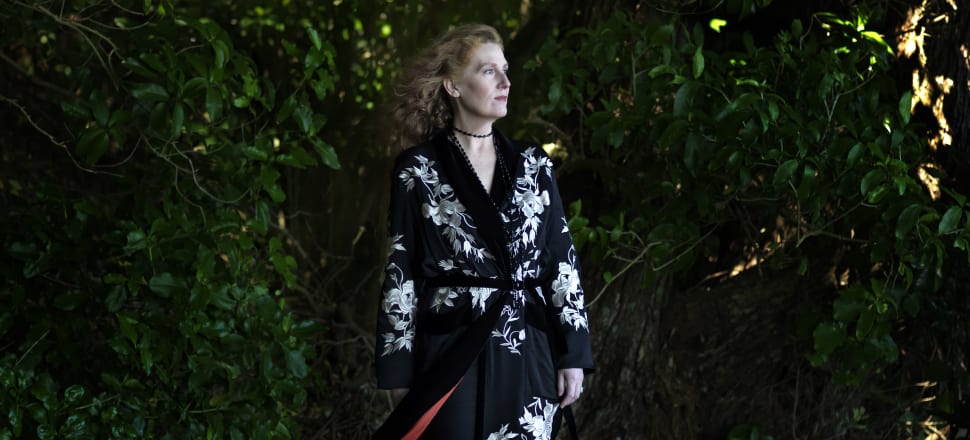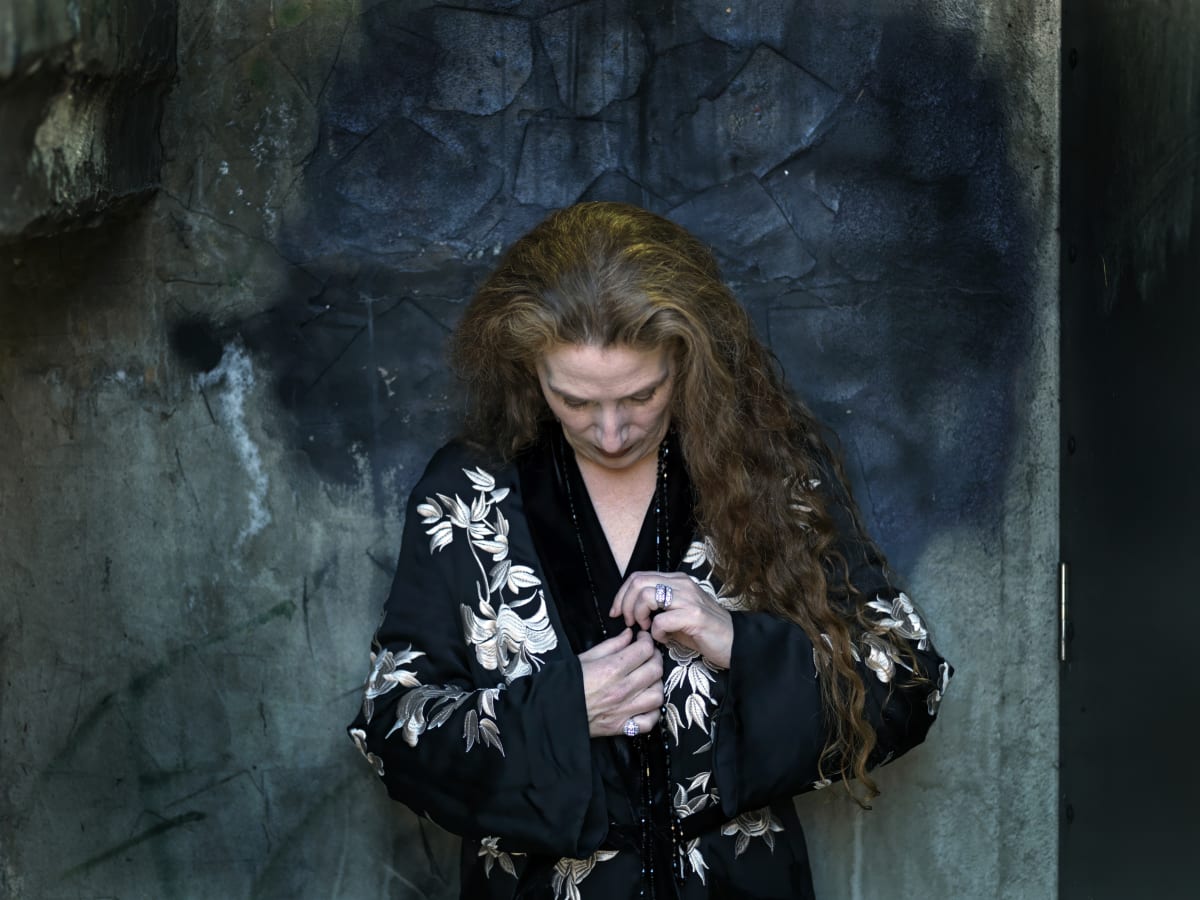
Chidgey's new novel a "classic"
Magpies have wheedled their way into much of my fiction over the years, including the book I’m currently writing – a novel for children with a piebald pony called Magpie and birds with supernatural, uncanny qualities. Australian magpies (Gymnorhina tibicen) have a similar allure to crows and ravens, the staple of the gothic and the fantastical. They slip easily into the role of harbingers, tricksters, witnesses. They're ever present in the rural landscape of Aotearoa and strut around like they own the place – sticking their beaks into everyone’s business, riding on the backs of sheep – and they’re embedded deep in the New Zealand literary psyche thanks to Denis Glover’s desolate poem.
When I heard that Catherine Chidgey had written a book with a magpie as a narrator, I was both intrigued and jealous. Am I annoyed with myself that I hadn’t thought to have a magpie narrate my latest book? Yes. Is it too late now? Also yes. But if you subscribe to the notion that ideas float around in the ether until someone pulls them down, I am glad that this particular idea ended up in the hands of this writer.
Tama the magpie is the voice of The Axeman’s Carnival. Tama is a foundling, fallen from his nest, lifted into the “pillowed palm” of Marnie while his panicked mother looks on. He' s carried into a new life in a farmhouse, where he's at first housed in the laundry, but later moves into the nursery, where he sleeps in a baby’s cot. Marnie does try to release him back into the wild once he’s old enough, but it doesn’t take. He’s found that half his family has been wiped out (death by car, death by cold) and living with humans seems a much more attractive existence: “I belonged and did not belong, and I was bird and not-bird.”
In the human house, Tama bears witness to the harsh life of an unremarkable couple trying to scrape an existence from uncooperative land steeped in the ghosts of hardship, where settlers built flimsy wooden houses, fooling themselves that their new country had a temperate climate. Along with drought and financial ruin, the threat of domestic violence simmers underneath; Rob, Marnie’s husband, is angry and jealous, and after a few drinks he takes it out on his wife. It’s nasty.

At first, Tama is a distraction for Marnie and an irritation for Rob, but soon the magpie comes to mean more to both of them. He becomes an internet sensation when he begins talking, mimicking the language of not just his captors/protectors but the radio, the television, and the relations next door. Marnie dresses him in costumes – a doctor’s outfit, a fireman’s outfit – and soon he’s amassed thousands of followers on Twitter (I did wonder if Instagram might be more suitable). He starts to make money for the couple, and they dare to hope they can put their problems behind them. To Rob, Tama is a financial asset. To Marnie, he is more: . a surrogate for the much-wanted and needed baby that miscarried.
At its heart, The Axeman’s Carnival is mythic in nature. It deals in archetypes – the foundling/changeling, the yearned-for child, a symbolically barren couple whose barrenness is reflected in the landscape (drought, aborted lambs, bleak midwinter snow). The Icelandic novelist and poet Sjón, a writer preoccupied with ancient myth, has said that it's more or less impossible to write a novel devoid of mythical or folkloric elements, because humans have been alive for thousands of years, telling the same stories. But the best stories take these elements and forge something wholly new, and what Catherine Chidgey has pulled off is nothing short of brilliant.
Marnie yearns for a baby, her lost baby, and draws Tama in with that yearning, making him complicit: “This is our second chance, Tama. You’re our second chance. Our little boy… Why shouldn’t it be our turn? My sweet boy.” Tama too yearns for the love of parents he has lost – the father who spurns him and the dead mother who appears, along with his brothers, as ghosts. They are what mythologist Martin Shaw, in his book Courting the Wild Twin, calls the "invested dead". He explains that they “inhabit the nattering jawbone and mottled tongue of someone who suddenly speaks words you desperately need to hear”.
Chidgey writes, "And at night the ghosts of brothers came in the peace and bloody quiet, and the ghost of my mother too, and they sang to me through the glass, their voices the wind in the pine trees. Their voices the rain, their voices the swish and gnaw of something underground. And the ghosts of my brothers were only feathers, and the ghost of my mother was only bones. Death by car, they sang. Death by cold.” Magpies as harbingers, warning him, but he's not listening. When things turn nasty, his brothers implore him: “Why don’t you leave?” but as with all cases of domestic violence, the situation is so much more complicated.
The atmosphere that Chidgey invokes has an earthy, ancient quality. It calls to something deep within us as readers – it’s hypnotic, as though Tama is the epic poet by the fire, and we are all staring into the flames, listening. The story also belongs to a tradition of folklore where animals take on human properties – the wolf in the cabin in the woods, the frog that becomes a prince, the Lindworm that is the wild twin that Shaw writes about, cast out at birth. More recently I’m thinking of last year’s film Lamb, co-written by Sjón, where a childless couple takes in a creature that is part lamb, part human child. Like The Axeman’s Carnival, Lamb employs the powerful trope of the empty baby’s room that has been lovingly prepared, only to sit empty. It cries out for something to fill it, even if that something isn’t human.

The addictive rewards of social media don’t seem out of place here; they are the elixir that can’t be resisted. And the comments! Tama’s fans are like a sinister chorus, commenting on everything that goes on, hungry for ever more of him, showing up to worship him in person. They take on the shape of a sort of Dionysian pack that could turn their fervour into something dangerous, come to tear him limb from limb in their adoration. Or, something cosier and more relatable, Maurice Sendak’s wild things declaring: “We'll eat you up – we love you so!”
But let me invoke some more modern parallels, closer to home. The fine tradition of New Zealand gothic: the Baxter poem, "High Country Weather" that provides the book’s epigram; the cinema of unease and all its menace and desolation – Vigil, The Quiet Earth, Smash Palace, The Piano. But also the pastoral comedy-horror of Black Sheep and The Locals. Mixed in with the darkness: the brightness and absurdity of the internet, evoking a tone more akin to Hunt for the Wilderpeople.
If this all sounds like well-worn territory, it is, but that is not a criticism. If anything, these other stories provide shoulders to stand on so that the star of the show can take flight. Because Tama, in the hands of one of our best writers, soars. His unique, quardling voice is the beating heart of the book, much in the way he notes, when he has pulled the stuffing out of a bear originally intended for the human baby and finds the electronic device that enables it to talk, “the heart was also the voice, and the bear wouldn’t talk without it.”
Tama’s voice provides dark poetry, dramatic irony, startling wisdom and trickster delights. It swoops and cackles and sings. It relays the soliloquies the other characters occasionally speak, enabling us to get a glimpse of their interior lives, even eliciting a shred of sympathy for Rob and his cold "riverstone eyes".
Tama is a mimic but so much more. Like a child who parrots swear words parents have inadvertently taught, Tama repeats words and phrases he hears, usually in inappropriate situations, sometimes revealing secrets. His voice comes from his heart, but it also comes from the people around him. Descriptive words are repeated like mantras – "yolk-yellow house", "beetle-black car", a lampshade "like the moon if the moon had moths in it". His own words are sprinkled with borrowed phrases like "bloody peace and quiet" and "He wasn’t a sure thing. It wasn’t a foregone bloody conclusion." It reminds me of that other viral internet kiwi – the little girl who insists it is not a goat outside, but a fucking goat.

He also transliterates the calls of his fellow birds: "We are here and this is our tree and we’re staying and it is ours and you need to leave and now" and "pierce their eyes, drink their blood, clean their bones." It’s an acrobatic feat that Chidgey shares with Laura Jean McKay’s The Animals in That Country, where humans begin to understand animals and it drives them mad. In both these books, the voices of the animals are far more poetic and clear-eyed than humans. To hear them is to be unsettled and enchanted at once.
Lest it all sound dark and serious, this book is frequently hilarious. Its sense of foreboding and menace, its Oedipal undertones, are tempered by plush toys and cute outfits. It’s great to see Chidgey exercising her funny bone, the one I so often see on social media (yes she has been known to dress her own animals up in costumes) but which hasn’t been so obvious in her serious, important novels. LOL/cringe moments include a baby’s encounter with a freshly chopped lamb’s tail and comic relief is also provided by a couple of inept fundamentalist bird-nappers, but that is more of a brief diversion than anything, a chance for Tama to see the world outside the farm and to provide a cinematic moment of a birds-eye view of humanity in its small town glory.
Tama’s father, the archetype of the disapproving, emotionally unavailable father, is one of my favourite characters in the book. When not berating him for embracing the human world, and warning him that humans are killers, he pretends Tama doesn’t exist, that he can’t hear him, that he’s “just a pebble tumbling down the hillside. A tiny traitorous pebble rattling along. I do not speak to pebbles.” Even in the bird kingdom fathers can be hard bastards to please.
Drawing on her husband’s memories of growing up on a farm, and the diaries of her mother in law, Chidgey writes with a thick layer of authenticity. You can always be sure that a novel from this author is impeccably researched, but this one feels more personal. She presents a vivid sense of place through Tama’s eyes (right and left, which can see different things at once, symbolic perhaps, of the duality that runs through the book). The business of the farm and the carnival of the title feel strikingly real.
Like all gothic, mythic, tragic stories, it hurtles towards an inevitable crescendo, a cleansing catastrophe. My only small gripe is that in a book heavy with foreshadowing, the final incident – a well-established trope – is too heavily signposted, which spoilt it a little. But even though the ending is not surprising, it is inescapable, as if Tama and Rob and Marnie have always been meant to careen on an unstoppable trajectory towards their fates, playing their part in the sport of the gods, like flies.
The Axeman’s Carnival is remarkable, brilliant, a classic in the making. All hail, Tama. All hail, Chidgey.
The Axeman’s Carnival by Catherine Chidgey (Te Herenga Waka University Press, $35) is available in bookstores nationwide.







